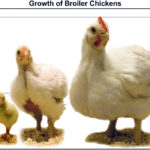Among all domestic animal species, chickens have a special place in the history of human civilizations and on our dinner plates. Chickens were domesticated from wild jungle fowl that lived in the forests of southeastern Asia and spread via trade routes into the Middle East, Europe and Africa. During the establishment of European colonies worldwide, […] Read more
Stories by Jamie Rothenburger, DVM

Sarcoids remain the most common cancer in horses
When it comes to animal health care, cancer is much more frequent in pet dogs and cats than it is in horses. However, cancer can occur in horses, particularly older ones. Tumours can arise from any cell type in the body ranging from those that make up the skin to the cells that line the […] Read more
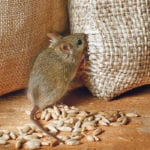
Rodents on farms pose health risk to livestock, people
We all know intuitively that rats and mice on farms are a bad thing. With their continually erupting teeth, these rodents can chew and nibble their way through important infrastructure. They can destroy walls, pipes and equipment. Barn fires have often been attributed to damaged electrical wires, and rodent arsons are usually prime suspects. Rodents […] Read more

Marijuana toxicity can pose health problems for pets
The first time I treated a cannabis overdose was when a man brought in his beautiful, new nine-week-old puppy. The roly-poly bundle of joy had ripped open a baggy and gorged on the entire stash. The man was sick with worry and rightly so — marijuana toxicity can be very serious in pets. The recent […] Read more

Farm dogs require unique health care requirements due to lifestyle
Dogs are dogs. They all have the same basic genes, whether they are Great Danes or Dachshunds. They also have relatively similar anatomy, immune systems and metabolism. All dogs are susceptible to certain infections and conditions. But due to their lifestyle, farm dogs have some unique health and wellness considerations that differ from pampered city […] Read more
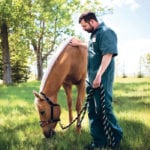
Pre-purchase examinations valuable when buying horses
After countless hours of scrolling through classified ads, you think you’ve found your next horse. Once an in-person meeting goes well, you may want to consider a pre-purchase exam before signing the cheque or sending an e-transfer. Many veterinarians offer pre-purchase examinations to check over a horse. The basic examination involves a detailed head-to-toe checkup. […] Read more
Tracking down cause of sudden death in cattle herds is vital
Dead animals are a sight no producer wishes to see. The sudden death in a previously thriving cattle herd can be devastating and frustrating. But it’s important to have a close second look at the case and determine the cause of death, or to at least rule out certain possibilities to help with future prevention […] Read more
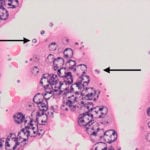
Cryptosporidiosis is a common cause of scours in calves
The cold, snowy spring this year made for an especially challenging calving season. Many producers experienced sick calves and substantial loses. One of the culprits during this tough spring was a parasite called Cryptosporidium. Cryptosporidiosis is a common cause of diarrhea in young calves. This nasty parasite attaches to and damages the intestinal lining, causing […] Read more
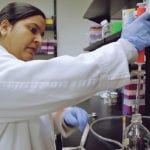
Deadly fish disease continues spread in Western Canada
With the summer lake season just around the corner, fish and game officials are on high alert for additional cases of the deadly whirling disease in fish. The disease is caused by a tiny parasite called Myxobolus cerebralis, a microscopic pathogen that attacks the cartilage of growing fish, causing damage and inflammation in the skull […] Read more

Many factors can cause pregnancy loss in mares
After months of careful planning and anticipation, the loss of a mare’s pregnancy can be devastating. Any number of things can cause fetal death in mares and it is worth knowing why in case preventive measures are available for future breedings. For starters, mares have to be healthy and well-nourished to carry a pregnancy to […] Read more

